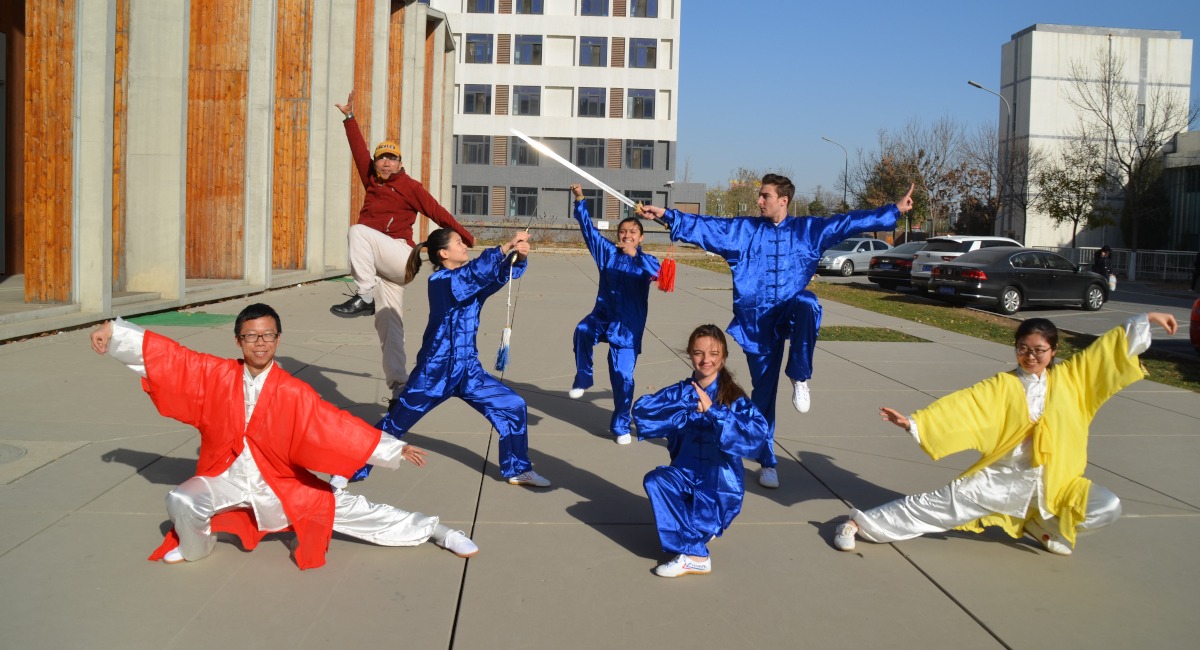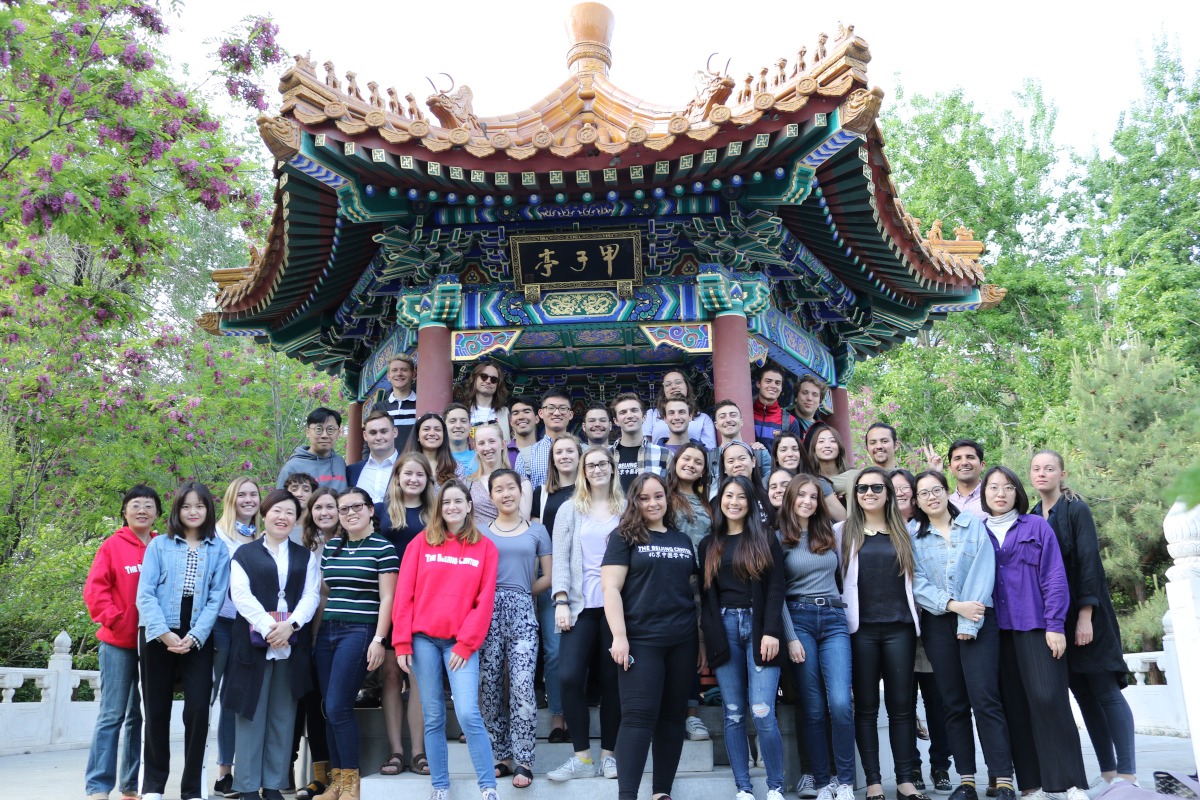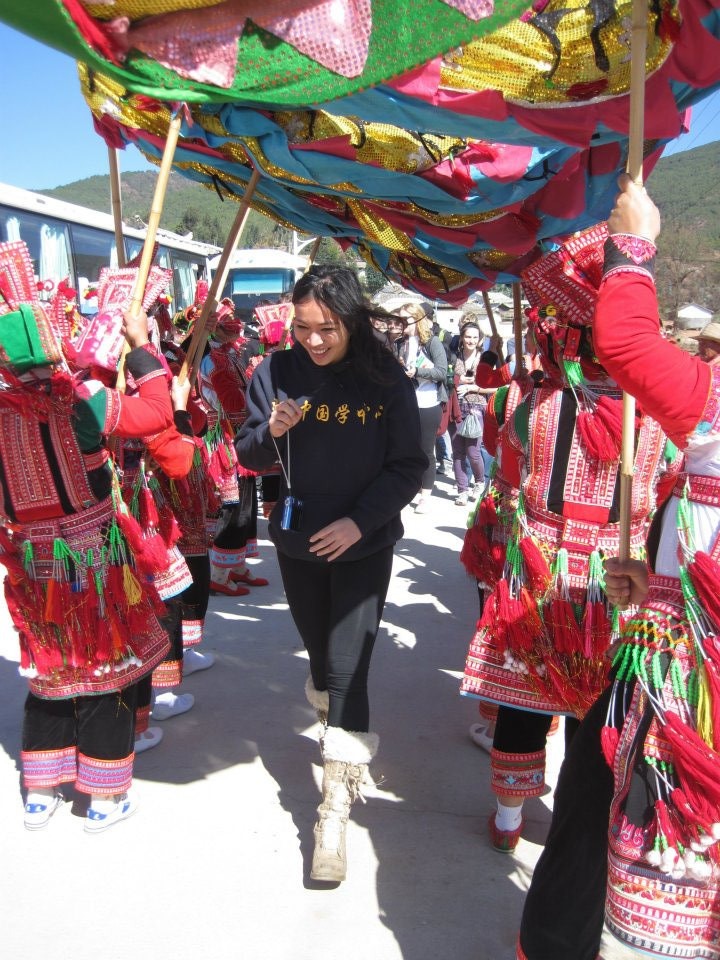
TBC students in Taichi class
Established in 1998, The Beijing Center for Chinese Studies (TBC) stands as a Jesuit institution dedicated to higher education and research. As the only Jesuit institution in mainland China, TBC serves as a bridge for East-West dialogue and cultural exchange. Rooted in the legacy of Matteo Ricci, TBC is committed to fostering mutual understanding between China and the global community through comprehensive education, research, and cultural initiatives.
To mark its 25th anniversary, TBC launched a year-long celebration beginning in 2023. Alumni and friends gathered to reflect on the past and embrace the promising future ahead. From its humble beginnings with seven pioneering students in the inaugural class of 1998, TBC has evolved into a vast network comprising thousands of alumni and friends. They have played an indispensable role in fostering engagement, dialogue, and global transformation through educational exchange. During the 25th anniversary kickoff party, Fr Tony Moreno SJ, former Chairman of the Board of Directors, emphasised the enduring values of courage and creativity that will propel TBC’s mission of East-West friendship into the future.
Over the past 25 years, TBC’s academic programmes have been deeply rooted in Ignatian pedagogy, providing undergraduate students from Europe and the Americas with various opportunities to immerse themselves in China’s rich culture. From humanities and social studies to visual and martial arts, TBC’s curriculum prioritises active participation, reflective learning, and contextual understanding. To date, over 2,500 students have enriched their academic journeys through TBC’s semester, summer, and year-long study programmes.
The Anton Library of Chinese Studies, established in tribute to founder Fr Ron Anton SJ for his notable contributions to international education, has undergone a remarkable transformation. Starting with a modest collection of 1,500 books left behind by departing students, it has evolved into the most extensive English-language library in mainland China, with a focus on China, now housing over 27,000 volumes. Within its comprehensive collection lie numerous rare and inaugural editions, making the Anton Library a renowned global hub for scholars and researchers alike.
The signature ChinaContact programme offers an immersive, educational experience designed to deepen understanding of China’s rich cultural tapestry and contemporary dynamics. This unique programme facilitates direct engagement with Chinese society, allowing participants to gain firsthand insights into the country’s history, traditions, and modern developments. Through a blend of academic coursework, cultural excursions, and interactive experiences, ChinaContact empowers students, scholars, and professionals to build meaningful connections and acquire a nuanced perspective of China.
In 2022, TBC expanded its reach by opening its first satellite site on mainland China, The Kunming Liya Center, located in Kunming, the capital of Yunnan province. Given China’s vastness as a classroom, exploring the country has been an integral aspect of the TBC experience since its inception. Students embark on explorations in Kunming as part of the Yunnan Excursion Trip, making the selection of Kunming as the inaugural satellite site for TBC a natural choice. To date, the centre has served as a classroom for students participating in the Yunnan Excursion Trip, facilitated the 2023 CHINA Town Hall discussion, and hosted events and activities for other educational organisations and the local community.

“The magic of TBC is that in learning about other cultures, you come face-to-face with a greater understanding of your own,” said Dr Simon Koo TBC’s Executive Director. “No matter where you´re from, engaging with TBC brings you closer to yourself. And in that process, it also brings you closer to the friends you make along the way, whether they be from your own culture or not. We´re so excited to celebrate 25 years of this magic and look forward to the uncertain future of more friendship and exchange with Fr Tong at the helm.”
In gratitude for the contributions of alumni, faculty, visitors, and friends to TBC’s success, TBC looks forward to another 25 years of excellence and beyond, continuing to serve as a bridge between China and the world.
This article was first published in The Jesuits Asia Pacific 2024 magazine.







